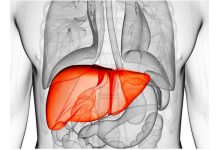Africa-Press – South-Africa. University of Cape Town (UCT) Professor Jo-Ann Passmore is working on developing a technology that can rapidly detect bacterial vaginosis (BV) and associated genital tract inflammation even in asymptomatic cases.
This after groundbreaking biomedical research by Passmore, an expert medical scientist on sexual reproductive health, linked genital inflammation to sexually transmitted infections (STIs) and BV, which are critical risk factors for HIV transmission and pregnancy complications among adolescent girls.
Passmore’s research group studies genital tract inflammatory biomarkers and mucosal surface immunity associated with protection from or susceptibility to STIs, including HPV and HIV. They have been involved in several randomised controlled trials and randomised cross-over studies of the effects of hormonal contraceptives on HIV risk in young women in South Africa.
The research says that limited healthcare services and the high cost of STI-specific tests have led to a reliance on diagnosing STIs and BV based on clinical signs and symptoms.
“A challenge arises as a considerable number of women and adolescent girls with STIs or BV exhibit no symptoms, leading to the potential for cases being missed and consequently left untreated. Moreover, factors such as the high cost of medication, the stigma associated with STIs/BV and the inconvenience of lengthy clinic visits deter many people from seeking medical assistance, resulting in low levels of diagnosis and treatment,” the research found.
It also found adolescent girls and young women aged 15 to 24 are at higher risk of HIV infection than their male counterparts.
In 2022, UNAIDS reported that adolescent girls and young women in sub-Saharan Africa were three times more likely to acquire HIV than teenage boys and young men of the same group.
Passmore said that, in addition to diagnosis challenges, current treatments for STIs and BV in Africa were primarily based on samples obtained from women participating in clinical trials in the global north.
She added:
Passmore also said that, to combat high HIV rates and improve pregnancy outcomes in sub-Saharan Africa, there was a need for an integrated approach that comprehensively diagnosed and treated these underlying issues.
“The alarming rates of HIV infection among adolescent girls and African young women underscore the urgency of addressing underlying factors. By embracing an integrated approach that tackles untreated STIs and BV, we are more likely to reduce HIV incidence in Africa,” she said.
To overcome the challenges of diagnosing women with asymptomatic STIs and BV, Passmore and her team at UCT are developing a technology that could revolutionise STI diagnosis and treatment.
“We are working on developing a genital inflammation test, which is a rapid test device that uses vaginal samples to screen for genital inflammation. This innovative technology improves early detection and intervention for women with asymptomatic STIs and BV, consequently reducing the risk of HIV infection,” Passmore said.
The professor added that using similar technology to an off-the-shelf pregnancy test, GIFT’s non-invasive, affordable and user-friendly nature made it a valuable test that could be done quickly and easily at the point of primary care or as part of home care.
She said the ground research would contribute to developing live probiotics to treat BV and associated genital tract inflammation.
“By understanding geographic variations in vaginal microbiomes that underlie BV in Africa, the Vaginal Microbiome Research Consortium for Africa can develop targeted interventions that can be tailor-made for and made available to African women and adolescent girls.”
For More News And Analysis About South-Africa Follow Africa-Press






